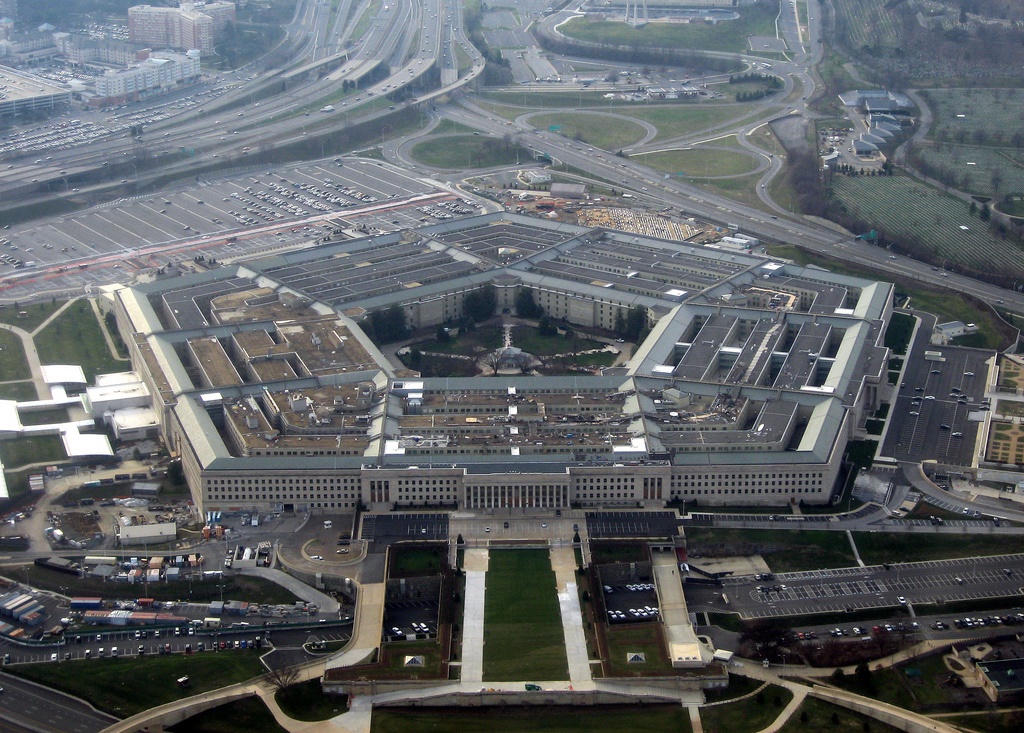The Peninsula
Don’t Fret – The U.S. Military is Not Going Away

By Phil Eskeland
Yesterday, for just the fifth time in his tenure, President Barack Obama took the highly unusual step of vetoing a bill that passed the normally grid-locked Congress. This time, he vetoed the annual defense authorization bill, one of the bills that must pass Congress each year in order to give defense policy guidance to the Executive Branch and approve spending levels for the U.S. Armed Forces. Earlier this month, the final version of the National Defense Authorization Act for Fiscal Year 2016 (H.R. 1735) passed the House of Representatives by a bipartisan vote of 270 to 156 (with the support of 37 Democrats) and the Senate by a wider bipartisan margin vote of 70 to 27 (with the support of 20 Democrats). Assuming no Member or Senator changes his or her position, there is sufficient votes to override a presidential veto with a two-thirds vote in the Senate, but any veto override attempt will fall short by about 20 votes in the House. The veto override vote is expected to take place on November 5, 2015.
Since the annual defense authorization process started in 1961, there have been only four times when previous presidents have vetoed this must-pass legislation. In each time, the president objected to specific items in the bill and within a month or two, Congress resolved the matter by altering or removing the offending provision(s) from the legislation to garner the president’s signature.
This time, the objections are different. While there are two disputes that are within the scope of the legislation (reinstating defense programs that the Pentagon does not want, such as the A-10 “Warthog” ground-attack aircraft, and impeding the Administration’s ability to close the terrorist detention facility at Guantanamo Bay, Cuba), the third objection may be more difficult to quickly resolve. The President believes that H.R. 1735 provides more funding to the Defense Department than allowed under the sequester limits contained in the Budget Control Act of 2011, which was revised upward in 2013. The sequester placed a cap on the amount of taxpayer dollars that can be spent aggregately on defense and non-defense programs. He believes that if Congress breaks the spending caps on defense, then non-defense programs should also not suffer under the sequester caps. The Obama Administration came to this conclusion by including the funding for overseas contingency operations, such the efforts in Afghanistan and against the Islamic State (ISIL), as part of regular defense spending while most on the Republican side in Congress argue that war-time operational defense spending should be considered as an “emergency” and outside of the regular spending caps.
Republicans also argue that the Congressionally-passed 2016 defense authorization bill mirrors exactly the President’s overall spending request for the Pentagon at $612 billion. They claim that the President is using soldiers, sailors, and airmen as pawns in the effort to eviscerate the caps in the sequester in order to spend more money on domestic spending programs. Lastly, Republicans emphasize that this defense legislation is just an authorization bill that approves various policy changes to Pentagon programs. As with any authorization bill, the legislation doesn’t spend any money – it simply sets in law the maximum amount of money that can be spent on a specific defense-related program. The actual money spent on defense will be part of a separate bill that appropriates the funds for the Pentagon, which may spend less than what is authorized by law.
Because the U.S. is expected to reach its debt ceiling limit by early November and the short-term appropriations bill (or “continuing resolution”) that funds the entire U.S. government is set to expire on December 11th, the President may be using this veto as leverage to obtain more relief from the sequester for non-defense programs, similar to another budgetary crisis that faced the federal government in 2013. Of note, the main Republican architect of the sequester relief in 2013, who was previously Chairman of the House Budget Committee, is now poised to become the Speaker of the House – Representative Paul Ryan of Wisconsin. This will be an interesting early test of his leadership to see if Speaker-in-waiting Ryan can replicate his success from 2013 in the coming weeks.
Suffice it to say that the U.S. has faced this crisis in the past and has resolved this matter within a couple of months. A veto of a defense authorization bill does not mean that the U.S. defense commitments are at risk. At the heart of matter is a battle over the funding priorities of the U.S. government that confronts every society – how much to spend on defense vs. non-defense items. While it is preferable that every federal program is authorized, the Congressional Budget Office (CBO) estimates that there are currently 260 federal programs that spend nearly $300 billion every year in unauthorized appropriations. Thus, America’s basic military programs will continue under the previously enacted short-term continuing resolution, including the U.S. commitment on the Korean peninsula, but new initiatives in H.R. 1735, such as $61 million for the U.S. Army to construct new family housing at Camp Walker in South Korea, as requested by the Executive Branch, will be put on temporary hold for the immediate future until this budget fight is resolved.
Phil Eskeland is Executive Director for Operations and Policy at the Korea Economic Institute of America. The views expressed here are his own.
Photo from David P. Gleason’s photostream on flickr Creative Commons.
